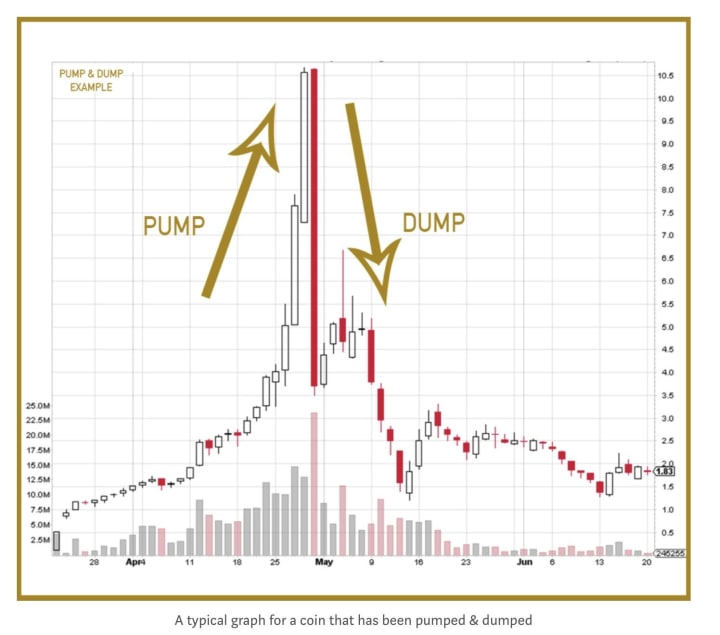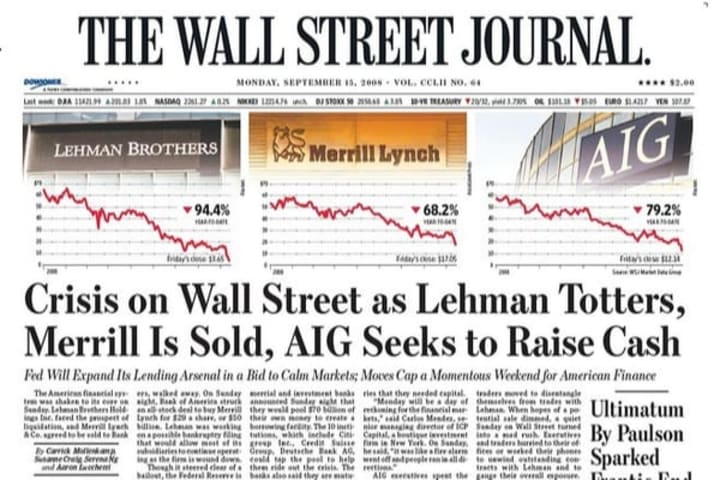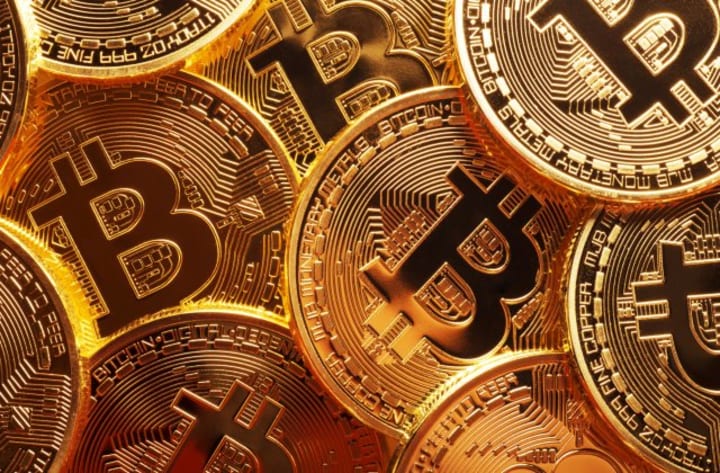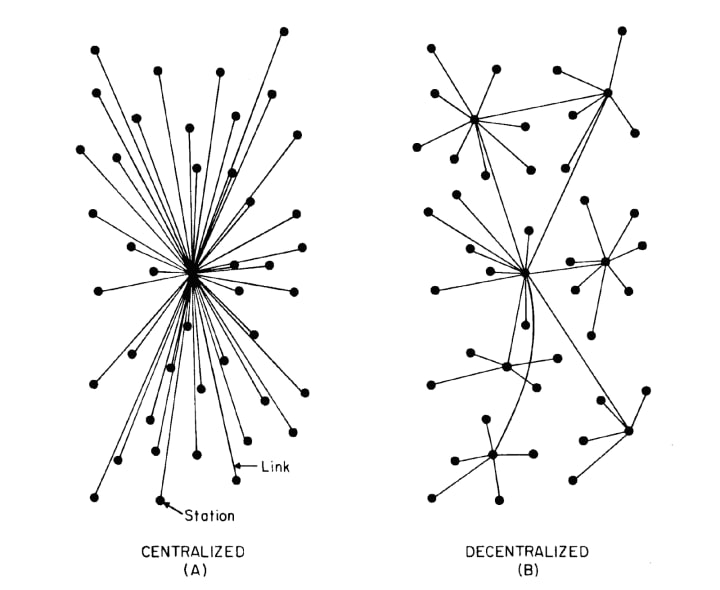DARK SIDE OF THE STOCK MARKET (Insider Trading)(Stock Market Manipulation)
Stock Market Manipulation. Insider Trading. How do some people exploit the stock market? What are the adverse effects of the stock market on a person and society at large?

Despite the fact that these are very common topics, they are rarely discussed.
Let's look at the downside of the stock market.
Don't get me wrong. Many of you may invest in the stock market, and I do as well, so I'm not saying the stock market concept is incorrect, but the information in this article will force you to think in new ways. And the next time you invest in the stock market, you'll be able to make better decisions.
Have you ever thought about it? What is the purpose of a stock exchange?
What is the purpose of stock exchanges?
What would happen if stock exchanges ceased to exist?
There is a simple explanation for this. Large corporations require large sums of money for large projects. A sum of money that no single person owns solely. People can invest their money in companies through the stock market, and companies can get funding for major projects and new innovations. In exchange, people receive a stake in the company's ownership. It means that if the company makes a good profit in the future, you will be able to share in it.
However, if the company suffers a loss, you must bear the loss. This is the fundamental principle underlying the operation of the stock market.

But if you look at the stock market from the perspective of a common individual, a common investor looking to invest in the stock market, Suppose, you are an investor that wants to invest in the stock market and you have the option of hundreds of companies.
In which company would you invest your money?
What would you consider before investing?
You’d ask which company would give you the most profit. Which company would provide you with the best return on investment for the money you'd invest? Which company would you put your money on in this bet?
If I tell you that I have the secret information about this Company X, that this company would soon get big funding due to which, its stock price would increase rapidly in the future, so you should invest your money in this Company X and if I give this secret information to you only, wouldn’t this gamble be unfair for the rest of the people?
Because they don’t have this secret information the stock price of this company will soon go up. This is the game of insider trading.
The stock market has had its ups and downs over the years. But one thing's clear - it's always been a volatile and unpredictable market. And we need to stay ahead of the curve. You can also check the stock market history
Insider trading, in general, refers to profiting from information that is not generally available to the public. This 'Insider information' can be leaked by any insider, whether they are employees of the company, an executive of the company, or the company's accountant; however, if they use this information to invest in the stock market, it would be unethical. It would be considered insider trading. Even if they share this information with a friend or an outsider who is not a part of the company, it is considered insider trading.
However, it is not always illegal to reveal this insider information. Consider the case of a journalist. It is legal for a journalist to conduct an investigation in which he analyses insider information from the company, earnings data, or profit data that are not publicly available.
Because the journalist is only interested in insider information for his story, as is his job. However, if the journalist discovers during the course of his investigation that such and such accounts of the company are managed in such a way that the stock price of the company can be reasonably predicted to go up or down, and the journalist uses the information to earn a profit, this is considered Insider Trading. Now you'd wonder if your friends are checking to see if your friend works in a company and he secretly tells you insider information that you use to make a profit without anyone knowing. True, it is difficult to track these things, which is why stock market manipulation like this is so common. Not only in India, but also throughout the rest of the world.

Not only that but proving that a crime was committed as a result of this type of stock market manipulation is extremely difficult. Because there is a lot of ambiguity in the middle.
If you claim that you got the information from someone else on the bus while they were talking to each other, that you didn't try to get this information, and that you simply overheard someone else, then it isn't illegal to overhear the information.
Consider how unfair it would be for ordinary investors if a large corporation did such things.
Let me illustrate this with a real-life example.
The alleged Aluminum Scam by Goldman Sachs

What happened was that a branch of this bank was involved in aluminium production, and they controlled the supply of aluminium in such a way that the demand for aluminium increased and so did the price, and they then invested in Aluminium Futures because they could basically predict the future prices of aluminium. This article discussed how insiders can illegally profit from the stock market.
Let us now examine the stock market decisions of ordinary investors and the negative consequences of those decisions.
Consider this. What are your thoughts on investing money in the stock market? Most of you are primarily concerned with profits. This means that the remaining aspects are simply ignored. Most people have completely forgotten whether the company is doing good work, whether the company's ecosystem is good or not, and whether the company's impact on the world is good or bad.

I'll give you an example. Assume a company engages in cost-cutting practices and reduces employee salaries, or fires some employees, and the remaining employees are paid exploitative wages; doing so is good for the company's profits; more money saved by the company means more profits, and the company's investors only see profits. As a result, they would regard the practices as beneficial to them. And they'd like for it to happen. This would encourage the company to treat its employees worse. Or to pay them a pittance.
Similarly, if a company is harming the environment, suppose it uses harmful chemicals to manufacture its products because it is more cost-effective, allowing the company to profit more. Or they dump their chemical waste into our rivers. Because the cost of processing the chemicals is high, the profit margin is low. Or, because it is expensive to process garbage, they literally dump it around us. That is legal within the confines of the law. These are harmful to the world. People investing in the company, however, will be blinded by profits and will fail to recognize these facts because they are looking for a return on their investment. As a result, there is a significant negative ramification.
It is also important to consider the impact on the end-user. Because if companies only focus on profits, they are encouraged to create greed-based products rather than need-based products. Take, for example, your breakfast. Often, companies market their products as something you need to have with milk, but it's actually 70 percent sugar or the sugary cereals that everyone eats in the mornings. This has an effect on your health, and the company obviously makes a profit as a result. However, if you eat homemade food for breakfast, such as milk, lassi, or porridge, no company will profit from it. Neither would any shareholder benefit from it. So many people, whether knowingly or unknowingly, end up encouraging these things by investing their money.
The simple solution is to think about the company you want to invest in before you invest in the stock market. How are the company's products? What is the company's impact on the environment, society, and people in general? Keep the following in mind.
The following issue is related to this. Most people who invest in the stock market follow the herd mentality. They don't look at the company's performance, closing statements, or what the company actually does; they simply see that a friend has recommended investing in that company, or the company is discussed in the news, and all the investors are talking about the company, so they should go ahead and invest in it as well. It is far more important than the company's actual situation, and there is a very simple reason for this.
The more people who invest in the company, the higher the share price, and the greater the return on your investment. So, in some ways, the stock market is similar to fashion. What is the state of fashion? I'd like to wear the clothes that everyone else is wearing. That is the current trend. The same is true in the stock market. I'd buy the stocks that the others are buying, and if the others are selling a stock, I'd sell it as well.
As a result, the stock price or share price of a company does not always depend on its performance; rather, it depends on the company's image in the market, which can be built up and demolished quite easily through the use of PR machinery and advertisements. Through the use of paid news and brand ambassadors. All of these have a psychological impact that can eventually affect the company's stock price.
Assume I purchased a large amount of stock in a small company at a low cost. Then I go out and pay for news channels and print ads, hire PR firms and run Twitter trends to signal to the world that this company is about to explode. I'm pleading with everyone to invest in it. There is a lot of positive publicity, and as a result, more people invest, and the company's stock price rises. I make a lot of money and then sell my stocks. Because I owned a majority or a significant amount of the company's stock, the stock price would plummet. This is referred to as the 'Pump and Dump' Scheme.

First, inflate the stock price, and then, because you own a large portion of the stock, sell it off later. If you dump it, the stock price will plummet.
Do you know what's fascinating? The same thing can be done backward. In essence, you can bet on a company performing poorly in the future. In such cases, you can buy Shorts if you believe that a company will perform poorly in the future, and if this occurs, you can profit from it.
But consider this: as I previously stated, Pump and Dump schemes are common. Similarly, if you get a Troll army or use paid media systematically to malign a company, to the point where investors lose trust in the company and its stock price crashes, you could profit if you had invested in Shorts. This is referred to as Short and Distort.
It is essentially the inverse of Pump and Dump. And in a country like India, where rumors and fake news spread like wildfire on WhatsApp, you can imagine how easy it is.
I'll also give you a real-life example of this. When rumors about Corporate Governance issues in this company spread on WhatsApp in September 2018, the price of Infibeam Avenues' shares fell 73 percent. A total of 92 billion dollars in investor wealth was lost in a single day. When the value of the stock plummeted. This was not an indicator of the company's performance. But it did occur. Why? Because it is so easy to spread rumors in the stock market, people act in a herd mentality. Pump & Dump and Short & Distort are not the same as Insider Trading.
Because the insider or someone who knows an insider is the criminal in Insider Trading. They purposefully take advantage of price-sensitive information. In these cases, however, it is the collective public that acts like a herd, believing that they have insider information when they see a false rumor on WhatsApp or come across a rumor in the news, and they act on it. Furthermore, there are numerous ways to manipulate various aspects of the stock market.
Moles, for example, can be planted in a business. To disseminate insider information to non-insiders. Media outlets can be paid to slander a company. A large corporation can control various aspects of its operation, such as the supply of something, through which they can control the stock price, and they can invest themselves and profit from it. Now combine all of the problems and manipulations and observe the resulting chaos.
Consider a company that earns profits through stock manipulation. People invest in it because they are motivated by profit. Because people have a herd mentality, if one person invests in something, the others will want to as well. Things are getting progressively worse. Profits increase, stock price rises, and more people invest in the company. And as long as people are unaware of the manipulation, the company will profit. And it is precisely because of such factors that stock market bubbles form.

Shareholders, or those who have invested in the company, have never visited the company's headquarters. They don't know much about the company or its performance, but the company's on-the-ground situation could be dire. Corruption is common among the company's employees. They carry out a scheme to defraud people of their money. When such a bubble bursts in a large company, the entire stock market crashes, which can often lead to an economic crisis.
The 2008 Economic Crisis is the most egregious example of this.

It was brought about by the US housing bubble.
People had raised their voices and even protested against Wall Street following the 2008 Economic Crisis. People questioned how it was possible for these large corporations to manipulate the stock market in their favour while the common investor bears the losses. Furthermore, people were irritated that the government had bailed out these large corporations and banks. Even after everything they'd done.
Another interesting fact is that Bitcoin was invented shortly after this.

As a tool that is decentralized. People were tired of the government exerting centralized control over banks and the economy. As a result, it is said to be one of the primary motivations for creating Bitcoin. Bitcoin will be independent of any central bank or government agency. It will always be a decentralized tool, generating an alternative financial system. The majority of the negative aspects of the stock market that I discussed in this article also apply to cryptocurrencies.
In the world of cryptocurrencies, there have been several Pump and Dump schemes in which people hype up a random coin in order to keep a large portion of it, and then when the price rises, they Dump it and walk away with the entire profit. Profit motives and herd mentality can also be found in cryptocurrencies. When people put money into it.
But one thing is certain: there is little to no scope for things like insider trading in cryptocurrencies such as Bitcoin because it is decentralized and not controlled by a central company.

As a result, no central company can manipulate it in such a way that stock prices are affected. Despite this, I would not advise you to abandon your stock market investments. That is not correct. I invested money in it. All you have to do is keep these things in mind. You should be aware of these things, and you should be aware that they do occur. And how to avoid them.
I'd like to leave you with one last piece of advice.
Remember one thing whether you're investing in cryptocurrency or the stock market. Never take out a loan to invest. You should have either the required amount or a sufficient savings balance to invest that money. And don't invest if you don't have it. Because this is the final and most significant disadvantage of investing in the stock market or cryptocurrencies. When people take out loans to invest close money and are unable to repay the loan, the stock market crashes, and several people commit suicide as a result. Apart from that, keep in mind the points I mentioned when investing.
About the Creator
Sandip Mondal
I'm a writer and businessman with a passion for technology, finance, and traveling around the world.






Comments
There are no comments for this story
Be the first to respond and start the conversation.